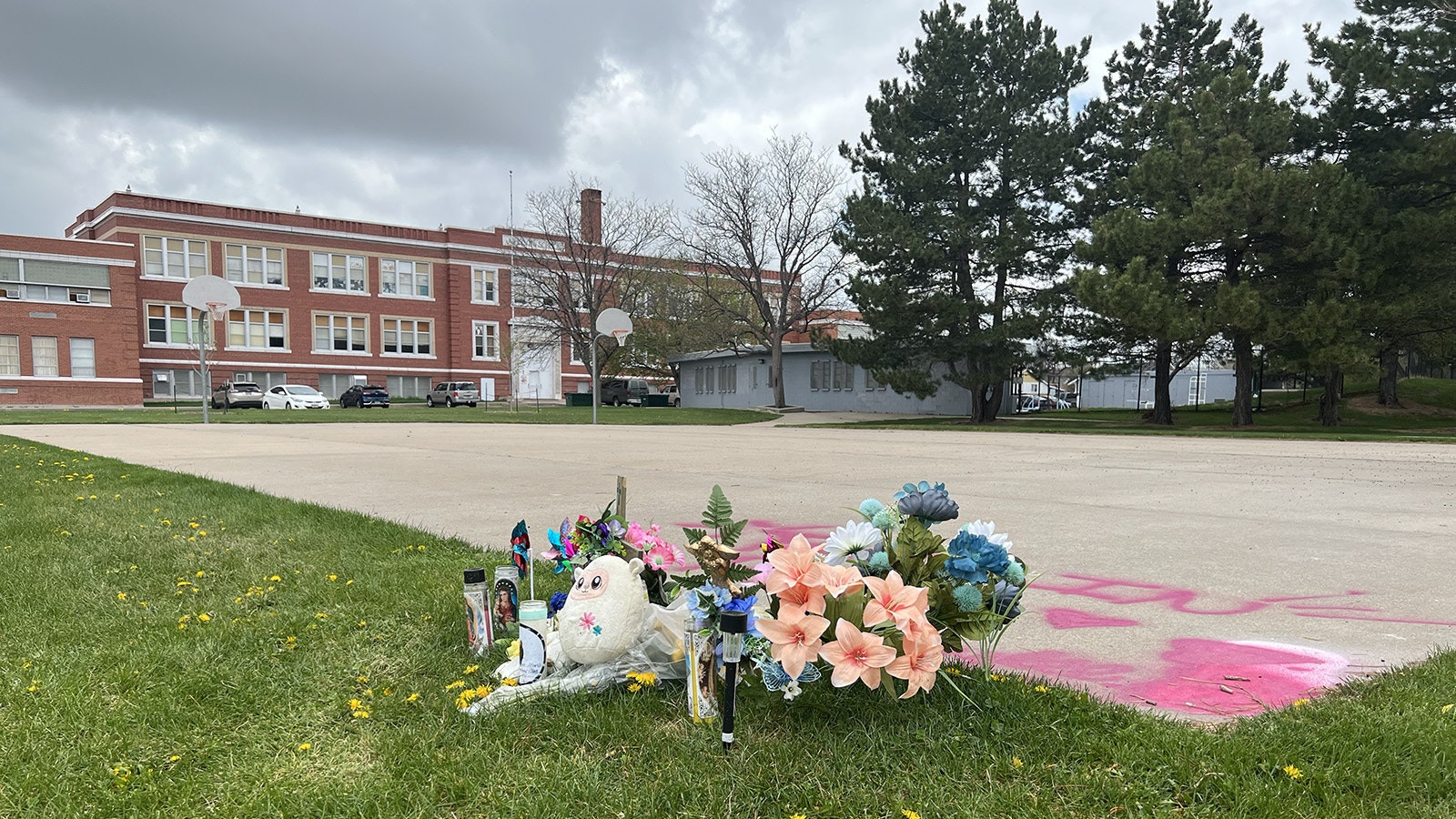A state judge has ruled that the teen accused of shooting and killing a 15-year-old girl this spring in a public park in Cheyenne should stay in adult, not juvenile, court.
The order represents a possible sentence of life in prison rather than the four years in an institution the juvenile court could have applied.
The Laramie County District Attorney’s office in May charged Johnny Muñoz, 17, as an adult with first-degree murder and conspiracy to commit first-degree murder for allegedly shooting and killing 15-year-old Baylee Clark-Carabajal in a drive-by shooting just after midnight April 30 in Cheyenne's Lincoln Park.
Muñoz’s attorney argued in late June that the judge should transfer the case to juvenile court, where a judge can’t apply a sentence lasting beyond the defendant’s 21st birthday. It’s a stark difference from the possible life sentence Muñoz faces in the adult-level court.
Laramie County District Court Judge Steven K. Sharpe in an Aug. 10 order denied that request and listed circumstances weighing in the state’s, rather than Muñoz’s, favor.
“The Defendant is charged with having committed an extremely serious, violent crime from which the community requires protection,” wrote Sharpe in the order. “The court would be hard-pressed to think of a more serious crime from which the community needs protection.”
Seven Things To Consider
Sharpe listed seven factors judges have to consider before sending a minor back to juvenile court against a prosecutor’s decision to charge that person as an adult.
Those are:
- The seriousness of the alleged offense and the protection the community requires.
- Whether the defendant’s alleged offense happened in an aggressive, violent, premeditated or willful manner.
- Whether the alleged offense was against people or property, and whether a person suffered serious injury.
- Whether the defendant has co-defendants in adult court.
- The teen’s sophistication and maturity as evidenced by his upbringing, character and pattern of living.
- His prior record.
- Whether the court has resources available for rehabilitating the defendant, if he’s judged delinquent.
This Study
Sharpe ruled that six out of the seven factors tilted in the prosecutor’s favor, not Muñoz’s.
The alleged murder is serious and reported to be premediated, aggressive and violent, Sharpe wrote.
“The alleged offense resulted in the death of a 15-year-old girl,” the judge continued, adding that that fulfills the personal injury prong of his analysis.
Muñoz’s codefendant Julian Espinoza faces charges in the adult-level court, Sharpe continued.
Sharpe said there wasn’t much evidence on Muñoz’s maturity level.
“The defendant was sophisticated enough to deny any involvement with the incident to law enforcement while actively concealing what is believed to be the instrument used to carry out the crime at the same time,” wrote Sharpe, referencing the evidentiary affidavit in the case.
Wyoming Boys’ School Doesn’t Do That
Muñoz’s attorney pointed to a Wyoming statute letting the juvenile corrections facility the Wyoming Boys’ School to keep boys through 21 years of age.
The school usually doesn’t keep them that long though, Sharpe wrote.
The defense argued back that just because it isn’t done, doesn’t mean the school could not make an exception for Muñoz.
But then, Sharpe noted, the school’s longest program for offenders runs for one year and is designed to deal with what a leader at the school called “sexual deviants.”
“The court cannot find that the Wyoming Boys’ School would be a viable option for placement were the defendant adjudicated delinquent,” Sharpe wrote.
Kiersti Willms, a Department of Family Services agent of 17 years, testified that the department’s juvenile probation programs are designed to handle a variety of offenses, but neither she nor the department’s other providers had received training concerning juveniles accused of offenses as violent as the one charged against Muñoz.
This One’s For You Though
Of the seven factors Sharpe analyzed, one of them tilted in Muñoz’s favor. That was Muñoz’s lack of criminal history.
Muñoz has had several “mutual combat” school fights that don’t appear to have resulted in law enforcement contact.
But Muñoz hasn’t been to juvenile court or institutions before, Sharpe said.
The Need To Prove This
The prosecutor had to persuade the court that Muñoz isn’t a good candidate for juvenile court, while the defense had to provide evidence, wrote Sharpe, describing the burden as “two-fold.”
“The state has satisfied its burden of persuasion,” the judge wrote. “(Muñoz’s) case should remain in District Court.”
Muñoz pleaded not guilty June 8 and is set for an Oct. 16 jury trial, according to his case file.
Meanwhile Muñoz’s co-defendant Julian Espinoza, 16, pleaded not guilty June 22 and is also set for trial Oct. 16.
Espinoza is accused of driving Muñoz past the park in the alleged drive-by shooting homicide. He faces a charge of conspiracy to commit first-degree murder, which also is punishable by life in prison, and another charge of aiding and abetting.
Clair McFarland can be reached at clair@cowboystatedaily.com.





